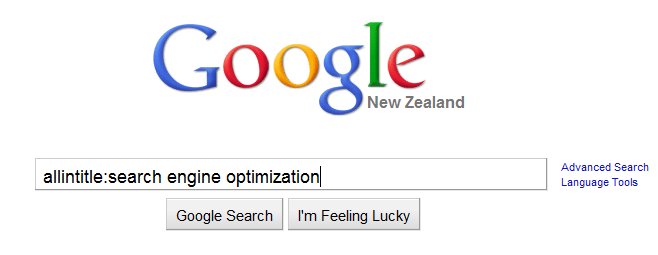I often hear the endless arguments and counter claims about the importance, or otherwise, of domain suffixes (aka top level domains), eg: .com, .net, .org etc.
One angle I’ve been seeing quite a bit recently is the suitability and level of trust a user places in a domain name.
For example, if a user had to go to a site like:
http://amazingdiscounts.XYZ
Where XYZ could be any of the lesser know domain suffixes like .me, .pl, .tv etc
would that user be suspicious or at least cautious being on a site that wasn’t a .com, .net or .org?
Additionally, I also see claims that if your site isn’t a .com, then users won’t remember the URL of your site or end up going to one of your competitors sites.
Well, I think that would have been the case 5+ years ago when users relied heavily on bookmarks and typing in the URL’s of the site they wanted to visit.
In my opinion, the whole process that most people use to navigate and find information on the Internet has changed significantly in the last few years. Let’s look a some of the reasons, why I think this is the case.
Search Engine Prevalence
Obviously search engines have been around for sometime, but when Google hit the scene, it changed the way people search for information.
These days a lot of people use Google as a portal, ie: it is the place they use to access any information or site they need. Whether their home page is set to Google or whether they use a Google search bar in their browser, they are constantly interacting with Google. For these types of people, Google is the Internet.
Additionally, these days, Google provides much more information than the standard search results in the early days. Now you can get search results on current news, images, videos, maps and all manner of related information.
Google becomes so integrated into these people’s usage, that they rarely or never type in a URL in the browser address bar. So for example, to go to Amazon, instead of typing:
http://amazon.com
in their browser address field, they’ll type “Amazon” into Google and get to it that way.
Browser Improvements
Browser development have included many improvements to make navigation so much easier from the early days when a browser was much more basic in functionality.
In the early days, to navigate to a web site, you would need to either:
- Type in the full URL of the site you wanted to go to (including the http://)
- Have previously bookmarked the site
- Use a search engine like Yahoo or Altavista (in the days before Google) or navigate through an Internet Directory.
These days, just about all modern browsers like Firefox, Safari, Chrome, Opera and IE have a range of features that make the above methods mostly redundant.
Features such as:
- Integrated search engine functions, so that there is no need to even navigate to a search engine.
- Auto-completion where you can type in the first few letters of a site, and the browser will display possible matches from your browsing history or bookmarked sites.
- Reopening of tabs and windows when you restart your browser. In the old days, you had to manually open all the windows you were previously on (assuming you could remember what they were and had bookmarked them)
- Adaptive address bar. You can type virtually anything into the address bar and get a result. For example, typing in amazon.com or Amazon, will get you to the Amazon website, whereas in the old days, you needed to type in exactly http://amazon.com
Bottom line is that not many people type in the URL of a website these days.
The Trust Factor
It’s certainly true that the .com extension is the most common in existence and that there’s a certain familiarity with them.
So the question is do people trust non .com domains?
Well, that depends. Some people pay attention to the domain name and might be put off a little by an unusual domain extension (given that they are sometimes used for phishing sites), however, I think that most people wouldn’t even look at the URL of the site they are on and even if they did, they wouldn’t care if the page in front of them had what they expected or what they were looking for.
Having said that, I found the following piece of information from Alex Smith on the Warrior Forum to be very interesting:
I decided last year that rather than replying on my own preference (.com) and marketers’ general preference (.com), I’d ask all my customers and prospective customers what they prefer to see, and what they think “looks best” on my sort of sites and what gives them most confidence in the site.
And the answer came back “.info”, loud and clear, from a big majority of those who expressed a preference, in each of eight different niches.
Looking To The Future
With the advent of global top-level domain names happening sometime in 2012, there will be a flood of new domains that will increase the top level domain diversity.
Cities and big companies will be applying for these new global names, so in future you’ll be seeing domains like:
cafes.newyork
camera.canon
So what does this all mean for Internet Marketers?
Well, I personally think that popular top level domains will have less and less importance as more choice becomes available and the general Internet users either become more used to the variety, or just don’t know or care.
Cheers




 Google reports there are 518,000 results:
Google reports there are 518,000 results:
 Now in theory, as this is searching on exact matches, ie: titles with the phrase “search engine optimization”, we should get a lot less results than searching without quotes.
Now in theory, as this is searching on exact matches, ie: titles with the phrase “search engine optimization”, we should get a lot less results than searching without quotes.




